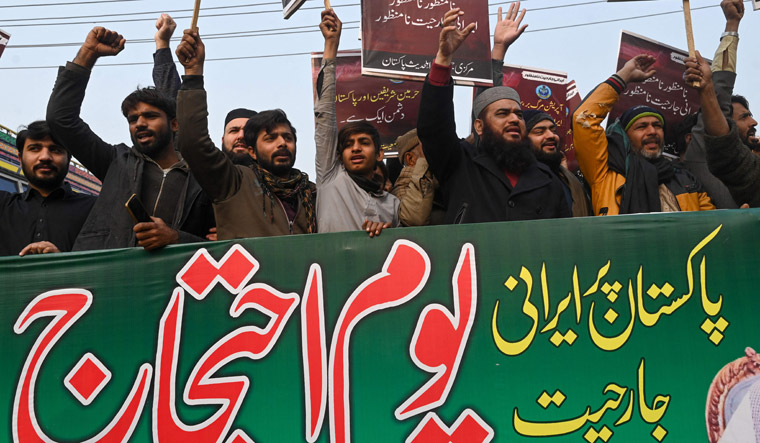After exchange of strikes between Pakistan and Iran, both nations has signalled that they don’t want to further escalate the tensions. Pakistan on Friday said it did not want to escalate a standoff with Iran. Both the nations foreign ministers held a telephonic conversation and agreed on cooperation.
Pakistan has called for an emergency security meeting with military and intelligence chiefs to review the situation after the attacks.
Reportedly, caretaker Prime Minister Anwaar ul Haq Kakar began the high-powered National Security Committee meeting. According to Information Minister Murtaza Solangi, the meeting aims at a "broad national security review in the aftermath of the Iran-Pakistan incidents".
In the wake of the attacks, Kakar had to rush back to his home on Thursday cutting the World Economic Forum in Davos.
"Pakistan has no interest or desire in escalation," the country's Foreign Minister Jalil Abbas Jilani said in a telephone call with his Turkish counterpart, reported Reuters.
Meanwhile, Pakistan and Iran in a telephonic conversation and agreed to the spirit of mutual trust and cooperation. The need for closer cooperation on security issues was also agreed on by both the nations.
Foreign Minister Jalil Abbas Jilani spoke with his Iranian counterpart Hossein Amir-Abdollahian and expressed Pakistan's readiness to work with Iran on all issues based on the spirit of mutual trust and cooperation, Pakistan's Foreign Office said in a statement.
He (Jilani) underscored the need for closer cooperation on security issues, said the statement issued after the two ministers spoke over the telephone.
Along with Turkey, the UN and US also urged both nations for restraint, while China has offered to mediate.
After the attacks, Pakistan has recalled it ambassador from Tehran and said Iran's envoy-on a visit home- is blocked from returning to Islamabad. The "precision military strikes" against militant hideouts in Iran's Siestan-Balochistan province killed nine, including four children.


